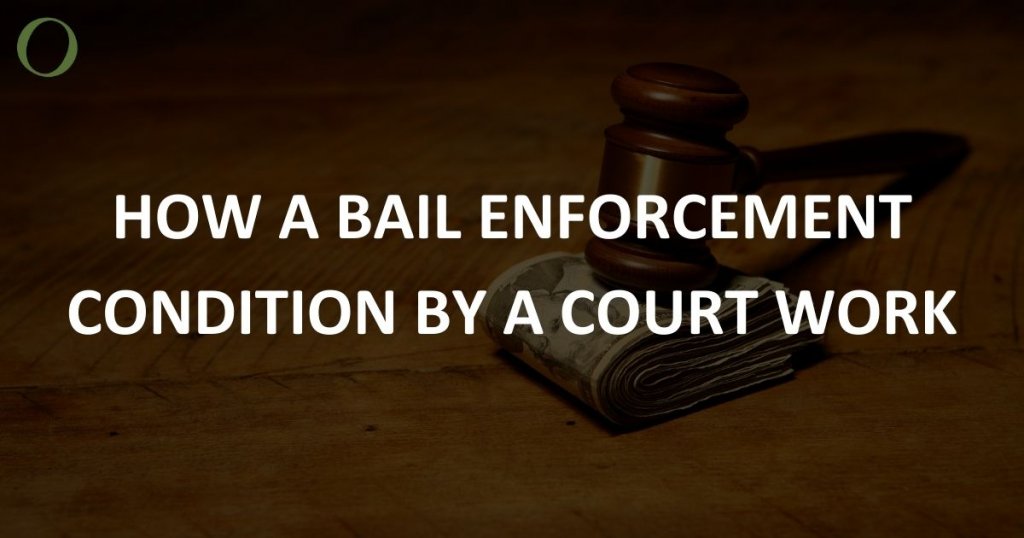What is a bail enforcement condition?
When a person gets bail, they can have certain conditions attached to their freedom. Such as, requiring them to reside at a specific address or imposing a curfew. These conditions are designed to alleviate any concerns or risks when granting bail, known as a ‘bail concern’.
An enforcement condition is a type of condition that requires the accused person who gets bail to comply with one or more kinds of police directions (s 30(2)). These assist monitoring and enforcing compliance with an underlying bail condition/s. In other words, they ensure that you stick with one or more of your bail conditions. For example, refraining from drugs or alcohol may be an underlying bail condition. The court could impose an enforcement condition that requires the accused person to undergo drug and alcohol testing to confirm they have not consumed drugs or alcohol.
The law for imposing enforcement conditions is found in the Bail Act 2013 (NSW).
Who can impose a bail enforcement condition?
An enforcement condition can only be imposed by a court at the request of the prosecutor (s 30(3)).
When can the court impose a bail enforcement condition?
The court can impose an enforcement condition if it considers the condition to be reasonable and necessary (s 30(5)). When deciding this, the court should have regard to:
- The history of the accused person. This includes their criminal history, and particularly any criminal history involving serious offences, or a large number of offences;
- The likelihood or risk that the accused person will commit further offences while on bail; and
- How complying with directions given under an enforcement order may unreasonable affect people other than the accused who is granted bail (s 30(5)).
The enforcement condition must include:
- The kinds of directions that can be give to the accused person;
- The circumstances in which each kind of direction can be given, to ensure compliance with the directions is not unnecessarily difficult; and
- The underlying bail condition that the direction aims to enforce (s 30(4)).
What happens if you do not follow a direction issued under the enforcement condition?
If you do not follow a direction issued under an enforcement condition, this is considered a breach of a bail condition. Police have several options when you breach a bail condition (s 77(1)). These are:
- Take no action;
- Give the accused person a warning;
- Issue the accused person with a notice that requires them to attend court or appear before an authorised justice;
- Issue the accused person with a Court Attendance Notice (CAN) (if the officer believes the breach is also an offence);
- Arrest the accused person, and take them before a court or authorised justice as soon as practicable; or
- Apply to an authorised justice for a warrant to arrest the accused person.
What action police take will depend on (s 77(3)):
- The seriousness of the breach;
- Whether the accused person has a reasonable excuse for the breach;
- The personal attributes and circumstances of the accused person; and
- Whether an alternative course of action is appropriate, rather than arresting the accused person.
The considerations in the Act do not limit what matters can be considered when police decide what action to take.
What happens if I can’t comply with the underlying bail condition?
If the underlying bail condition is too onerous or unnecessary, you can consider applying for a variation of your bail conditions. For more information on bail variations, visit our blog: Everything you need to know about bail variations
Contact our bail lawyers today if you need clarification.






